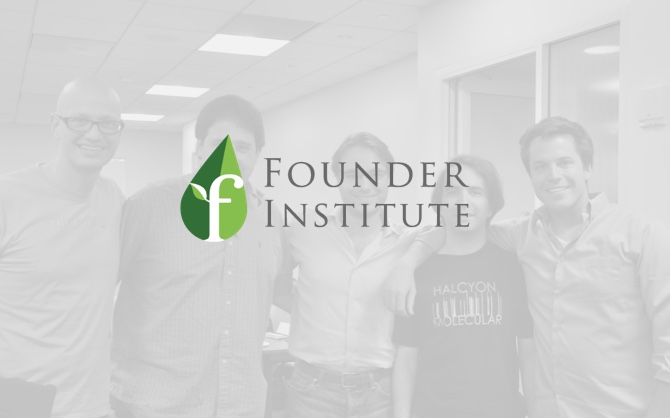
Denver, Boulder, and the Colorado Front Range is fast becoming one of the best places in the world to build a startup. There are an extraordinary number of resources to help entrepreneurs and founders in the region.
To help make all of these resources easier to find, we're excited to release the Front Range Colorado Startup Resource Guide, which is currently in v3 below! It was developed by the Colorado Founder Institute in partnership with Colorado Startups, and Local Leaders Craig Swiatek (Investment Advisor, Red Arrow Capital), Diane Bailey (Founder, GetToTraction.com), and Jonathan Greechan (Co-Founder, Founder Institute). It has been edited with input from the community, and the resource was inspired by Brad Feld's Startup Communities.
This is just a draft, and while we spent many hours on this research, more input is needed. Please leave your comments on this collaborative Google document to help us complete the list. There are definitely omissions on this current version, and the goal is to make it as exhaustive as possible.
Are you looking to build a startup in Colorado? Then apply to the Colorado Founder Institute pre-seed startup accelerator.
Access the doc above here, and we have also listed all the links below for ease of browsing.
Startup Stages
There is no one right way to build a technology company, but for the sake of simplicity we have outlined a basic, common, sequential framework.
1. IDEA-STAGE
This is where new entrepreneurs get inspired, learn best practices, develop skills, validate ideas, and begin to build their team and product.
-
Inspire
-
Startup Media: Centralized local information, listings, and news. (i.e. startup blogs/ publications/ lists/ FB groups/ newsletters)
-
Inspirational Events: Open, inclusive, beginner startup events (i.e. Startup Weekend, idea fairs, and inspirational meetups)
-
Educate
-
Best Practices: Beginner knowledge-sharing events. (i.e. beginner events that serve to educate more than inspirate)
-
Training & Feedback: Skill & Idea development. (Ex. bootcamps and comprehensive training programs)
-
Validate
-
Team Formation: Resources for teaming up. (i.e. events or other resources that facilitate early-stage recruitment and cofounder matching)
-
Build First Product: Hackathons & resources to build. (i.e. hackathons and other builder-focused events and resources)
2. LAUNCH-STAGE
In this stage, entrepreneurs establish and formalize the company, develop the product, get feedback from customers, and prepare for the next step.
-
Start
-
Establish: Law firms and banks for startups.
-
Workspace: Co-working and flexible workspaces.
-
Develop
-
Formalize: Accounting, development and HR for early-stage startups.
-
Prepare for Seed: Incubators and advanced mentorship. (i.e. advanced knowledge sharing, later stage events and resources for startup teams)
-
Launch
-
Seed Accelerators: Seed funding mentor programs. (i.e. Techstars and similar programs that provide seed-funding)
-
Pitch & Demo: Show local startups for investment (i.e. demo days for companies seeking seed investment)
3. GROWTH-STAGE
Here, a startup proves their utility, receives recognition, and scales up. This usually requires funding, angels, VCs, and ways to connect them to startups.
-
Recognition
-
Investor Networking: Connect professional investors with founders. (i.e. events or groups that facilitate connections with professional investors)
-
Major Media: Mainstream local business press. (i.e. major local or regional publications that frequently champion local businesses)
-
Funding
-
Angels: Seed-stage investors
-
Venture Capitalists: Seed and beyond
-
Lacuna Gap Capital (Boulder)
-
Growth
-
Infrastructure: Office space, HR, insurance & more. (i.e. resources and service providers for capital-rich companies to grow and scale)
-
Expansion: Growth accelerators/consultants. (i.e. programs and consultants for capital-rich companies to grow and scale)
4. SUCCESS STORIES
Successful homegrown companies that have raised significant institutional funding, employ a large workforce, or have achieved liquidity.
-
Associated Content
-
Cipherpoint Software
-
Closely
-
Datalogix
Supporters
To facilitate the steps, every ecosystem needs strong supporters.
1. EVANGELISTS
Successful local founders who lead the ecosystem & frequently mentor newbies.
-
Brian Williams
2. GOVERNMENT
Public organizations that facilitate local economic development
-
Colorado Office of Economic Development and International Trade
-
Pikes Peak Small Business Development Center (Colorado Springs)
3. TALENT
Major local business or tech universities and employers that attract and retain local talent.
Local Universities (universities with prominent technical or business programs)
Local Employers (Major technical employers, like Microsoft or Google, with large local offices)
-
Palantir (coming soon)
Learn more about the Startup Ecosystem Canvas here, and leave us your thoughts on the Front Range Canvas on this collaborative Google document (This is a perpetual work in progress, so more input is needed!)
This community resource was created by the Founder Institute Colorado, in partnership with Colorado Startups. Founder Institute Colorado is the local chapter of the world’s largest pre-seed startup accelerator. Colorado Startups is the largest online startup community in Colorado. If you are building a tech company in Colorado, learn more at http://FI.co and https://coloradostartups.org/.



